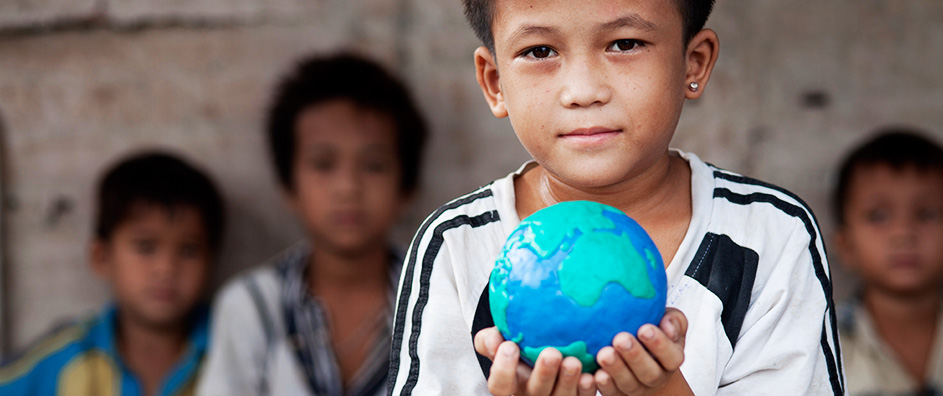The concept of human history within the Baha’i Faith is akin to a grand tapestry, skillfully interwoven by the hands of countless artisans, each contributing their unique threads to the enduring narrative of humanity. The Progressive Baha’i Concept of Human History invites believers and seekers alike to view our collective past not merely as a series of isolated events but as a continuous journey toward unity, development, and enlightenment. This article elucidates the intricate facets of this perspective, offering a framework that integrates the past, present, and future in harmony with Baha’i teachings.
At the heart of the Baha’i understanding of history lies the principle of progressive revelation. It posits that history is not a linear progression toward a predetermined endpoint but rather a divine orchestration, with various prophets and Manifestations of God emerging in different eras to illuminate humanity’s path. Each revelation builds upon the previous ones, much like the successive strokes of a master painter that bring life and depth to a canvas. This metaphor encapsulates how teachings from different religious traditions converge to form a comprehensive spiritual framework, enhancing the understanding of humanity’s collective quest for meaning.
Central to this discourse is the recognition of the age-old question: What is the purpose of human existence? The Baha’i teachings assert that our purpose transcends mere survival or individual gain; it is about fostering a society in which love, justice, and cooperation predominate. The emphasis is not solely on spiritual development but also on the enactment of collective social responsibility. In this light, humanity is viewed as a single entity, evolving through various stages of consciousness and awareness, striving ever toward greater unity. This perspective serves as a reminder that while historical events may be fraught with conflict and division, they are ultimately stepping stones toward a higher understanding of interconnectedness.
One cannot discuss the Progressive Baha’i Concept of Human History without addressing the intricate role of collective memory. Our histories—crafted through shared experiences, triumphs, and tribulations—form an essential foundation for understanding our identity. Baha’i teachings encourage individuals to reflect critically on their histories, drawing lessons from the past to inform present actions. This reflective process is akin to examining the cracks in a sculpture; it allows one to appreciate how imperfections contribute to the overall beauty and integrity of the work. Through the lens of history, believers are called to analyze the patterns of human behavior, seeking to understand the roots of conflict and the avenues for reconciliation.
The dialectic of history liberates us from the shackles of fatalism, promoting an active engagement with the future. In this vein, the Baha’i teach that humankind is not merely a passive observer of history but an active participant in its unfolding. This notion of ‘co-creation’ with the divine invites each individual to take an empowered stance in shaping the future—a vision that is both exhilarating and daunting. Here, the concept of “the Two Wings of the Spirit” is emblematic. These wings—spiritual application and material progress—must be cultivated simultaneously. The harmony between these two forces rejuvenates societies, serving as a catalyst for sustainable development and greater societal well-being.
Another salient aspect of the Baha’i view is the inevitability of change. Baha’i teachings explicate that historical development is characterized by cycles of growth and decline, much like the natural rhythms observed in the seasons. Such cyclical patterns underscore the transient nature of human experiences, incentivizing individuals to adopt a perspective of adaptability and resilience. This cyclical view aligns with the principle of unity in diversity, recognizing that while cultures and practices may differ, the underlying aspirations of humanity remain congruent. Thus, understanding history through this lens allows individuals to appreciate diverse cultures as integral threads in the overarching tapestry of existence.
Moreover, Baha’i teachings illuminate the critical relationship between history and the advancement of civilization. The narrative of progress is inextricably linked to our collective efforts to uphold justice, equity, and peace. History is replete with instances where these ideals were not merely aspirational but were actively fought for and achieved through persistent human endeavor. The Baha’i Faith calls upon its followers to be “fellow travelers” on this journey toward justice, underscoring that the actions of individuals can echo throughout history, catalyzing transformative change.
As we navigate the complexities of our modern world, the application of the Progressive Baha’i Concept of Human History invites us to recognize that we are the inheritors of a rich legacy, endowed with the responsibility of stewarding its future. This ethos of stewardship fosters a mindset that champions collaboration across global communities, nurturing a spirit of shared responsibility for the well-being of all. Such cooperation becomes paramount in confronting the challenges of contemporary society, from environmental degradation to social inequities, as it bridges divides and fosters understanding.
In conclusion, the Progressive Baha’i Concept of Human History serves as a potent reminder of the intricate interplay between our past, present, and future. It beckons individuals to engage thoughtfully with their histories and strive toward an empowered future characterized by unity and collective progress. As we confront the perpetual ebb and flow of time, this perspective encourages resilience, compassion, and stewardship, ensuring that the tapestry of humanity continues to evolve, enriched by the diverse contributions of all souls. Ultimately, history, in this Baha’i framework, is not a mere record of what has been but a clarion call for what can still be achieved together.
